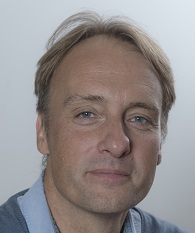Microwave Filter Synthesis and Tuning: what circuit and approximation theory can do for you
IEEE North Jersey MTT/AP Chapter Co-Sponsors the MTT-S Technical Webinar
Microwave Filter Synthesis and Tuning: What Circuit and Approximation Theory Can Do for You (Register now)
This presentation is based on Microwave Filter Synthesis and Tuning, used in designing electronic circuits and systems. Whereas microwave filters are by construction distributed structures, they are infinite dimensional linear dynamical systems. When roughly tuned, they admit a remarkable finite dimensional approximation based on lumped elements, namely their circuital approximation. This explains the success of the synthesis approach developed by G. Matthaei and pursued by authors like R.J. Cameron who refined and further developed the model known now as the coupling matrix approach.
While tuning a filter, it is therefore natural to try to fit a circuit to measured data in order to infer pertinent dimensional correction from it. The first step in this direction is to perform a rational approximation of the 2x2 filter's response at a given MacMillan degree: a task belonging to approximation theory. In this talk, we will review methods developed in the last decade to do so, in particular bounded analytical extension techniques followed by Hankel norm approximation approaches. Some details will be given on how to solve the phase loading problem which is inevitable when dealing with filter measurements. Eventually, the realization step consisting of constructing a circuit with a particular topology representing the previously obtained rational matrix will be discussed. Compatibility conditions will be given for the solvability of this polynomial, multivariate nonlinear problem. Eventually, techniques from computer algebra will be presented in order to obtain an effective approach.
Date and Time
Location
Hosts
Registration
-
 Add Event to Calendar
Add Event to Calendar
Loading virtual attendance info...
- Contact Event Host
-
Ajay Poddar (E-mail: akpoddar@ieee.org), Anisha Apte (E-mail: anisha_apte@ieee.org)
- Co-sponsored by IEEE North Jersey Section
Speakers
 Fabien Seyfert
Fabien Seyfert
Microwave Filter Synthesis and Tuning: What Circuit and Approximation Theory Can Do for You
Whereas microwave filters are by construction distributed structures, they are infinite dimensional linear dynamical systems. When roughly tuned, they admit a remarkable finite dimensional approximation based on lumped elements, namely their circuital approximation. This explains the success of the synthesis approach developed by G. Matthaei and pursued by authors like R.J. Cameron who refined and further developed the model known now as the coupling matrix approach. While tuning a filter, it is therefore natural to try to fit a circuit to measured data in order to infer pertinent dimensional correction from it. The first step in this direction is to perform a rational approximation of the 2x2 filter's response at a given MacMillan degree: a task belonging to approximation theory. In this talk, we will review methods developed in the last decade to do so, in particular bounded analytical extension techniques followed by Hankel norm approximation approaches. Some details will be given on how to solve the phase loading problem which is inevitable when dealing with filter measurements. Eventually the realization step consisting in constructing a circuit with a particular topology representing the previously obtained rational matrix will be discussed. Compatibility conditions will be given for the solvability of this polynomial, multivariate nonlinear problem. Eventually techniques from computer algebra will be presented in order to obtain an effective approach.
Biography:
Fabien Seyfert received the B.Eng. degree from the Ecole Superieure des Mines de St. Etienne, Saint-Étienne, France, in 1993, and the Ph.D. degree in mathematics from the Ecole Superierure des Mines de Paris, Paris, France, in 1998. From 1998 to 2001, he was with Siemens, Munich, Germany, as a Researcher specializing in discrete and continuous optimization methods. From 2002 to 2021, he was a Researcher with the Institut National de Recherche en Informatique et en Automatique (INRIA), Sophia Antipolis, France, where he led the Functional Analysis for the Conception and Assessment of Systems (FACTAS) team. At the end of 2021, he took a leave from INRIA and started his own private research consultant activity. His research is focused on the development of efficient mathematical procedures and associated software for signal processing, including computer-aided techniques for the design and tuning of microwave devices.
Address:United States

